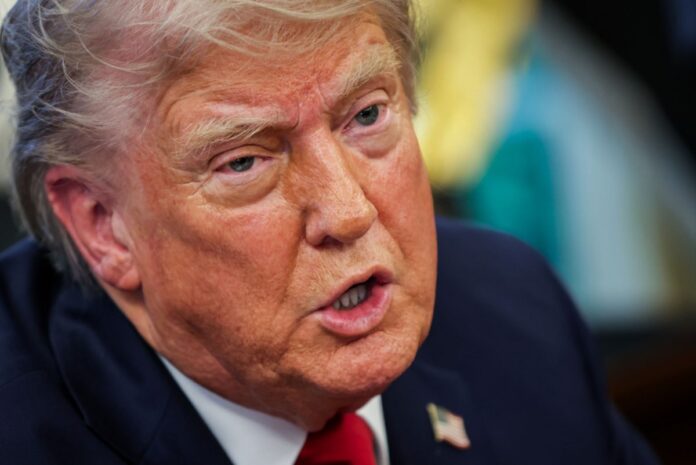Presidential Pardons: The Case of Michele Fiore
In a notable turn of events on April 25, 2025, President Donald Trump extended a pardon to Michele Fiore, a former member of the Las Vegas City Council, who had recently faced legal repercussions for her involvement in a charity fraud scheme. This decision adds another chapter to the ongoing narrative around presidential pardons, especially those connected to controversial legal cases.
The Charges Against Fiore
Fiore’s legal troubles culminated in a conviction on October 2024, where she was found guilty of conspiracy to commit wire fraud alongside six counts of wire fraud. The charges stemmed from Fiore’s misuse of over $70,000 that she had raised for a memorial fund dedicated to two police officers who had made the ultimate sacrifice in the line of duty. Instead of honoring their memory with the funds, she allegedly diverted the money towards personal expenses, including cosmetic procedures, rent, and her daughter’s wedding.
The Aftermath of the Conviction
At the time of her conviction, Fiore faced the prospect of a lengthy prison sentence, with recommended terms reaching as high as 100 years. However, amidst the potential threat of substantial incarceration, her legal team filed a motion to vacate her scheduled sentencing on the grounds of the recent pardon she received from President Trump. This motion was filed in the United States District Court for the District of Nevada, emphasizing the immediate legal ramifications of the presidential intervention.
Fiore’s Response
In a statement to the Las Vegas Review-Journal, Fiore expressed deep gratitude for the pardon, portraying it as a personal vindication. She stated, "Today, I stand before you, not just as a free woman, but as a vindicated soul whose prayers were heard, whose faith held firm, and whose truth could not be buried by injustice." Her response indicates a strong emotional connection to the outcome, casting herself as a victim of circumstances beyond her control, despite the serious nature of her offenses.
Public Reaction and Legal Implications
The reaction to the president’s decision was mixed, with significant backlash from various quarters. Notably, Nevada Attorney General Aaron Ford publicly condemned the pardon, citing it as a glaring disregard for the rule of law and a direct affront to law enforcement. In an X post, Ford expressed his disgust, calling the pardon "sickening" and highlighting the gravity of stealing from a fund meant to honor police officers.
The implications of such a pardon reach beyond Fiore’s case. They spark debates about accountability, justice, and the potential for political figures to influence the justice system. Critics argue that such pardons undermine public trust, especially in cases related to corruption and fraud that are meant to uphold the integrity of community funds.
The Broader Context of Presidential Pardons
Pardons have long been a contentious aspect of the United States legal landscape. They serve as a mechanism for addressing perceived miscarriages of justice, but they often raise questions about the motivations and ethics of their timing and recipients. President Trump’s decision to pardon Fiore is not the first of its kind; it joins a list of several high-profile pardons that have sparked debates surrounding the justice system, public morality, and political favoritism.
As this case continues to develop, it reflects a unique intersection of law, politics, and personal redemption. Fiore’s story serves as a reminder of the complicated nature of accountability—both for individuals and for the systems that govern them. With the wheels of justice turning and a motion to vacate her sentence in progress, the community watches closely, pondering the broader implications of such a significant executive action.
